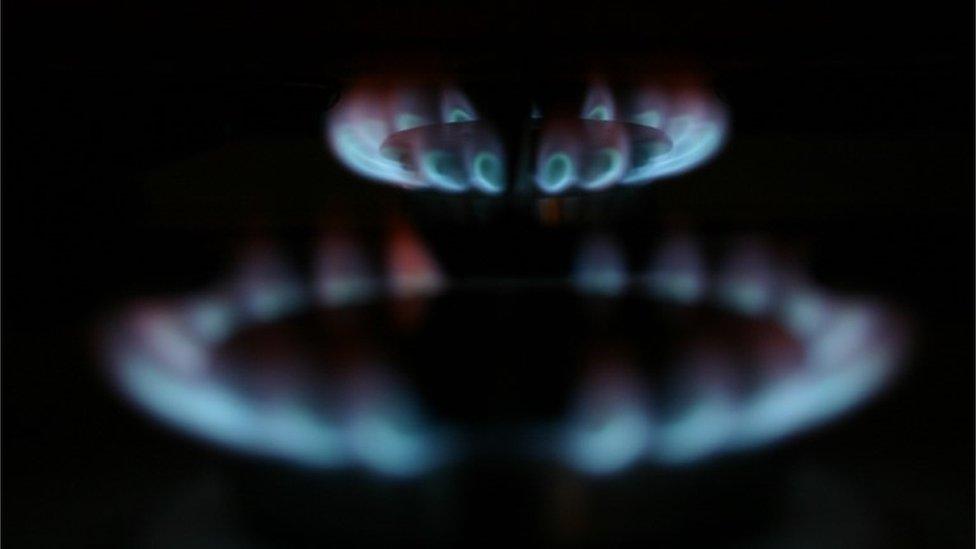British Gas and EDF cut gas prices
- Published

British Gas and EDF Energy have announced they are cutting their gas prices, the last of the big six energy suppliers to do so.
British Gas unveiled a 5.1% price reduction, followed swiftly by EDF's announcement of a 5% cut.
British Gas's price change takes effect on 16 March, while EDF's kicks in eight days later.
The moves benefit customers on a standard domestic gas tariff.
Britain's big six energy suppliers have been under pressure to pass on savings to customers after a 57% drop in wholesale gas prices since this time last year.
E.On was the first to announce a cut this year of 5.1%, followed by similar reductions by SSE, Scottish Power and Npower.
Executive director at consumer group Which?, Richard Lloyd, said :"Seeing all of the big suppliers mirror each other with small cuts in the face of falling wholesale prices will raise questions in many people's minds about whether competition is working in this market."
Shop around
British Gas, which is owned by Centrica, said 6.8 million of its customers on dual-fuel deals would see an average annual saving of £31 due to the 5.1% cut.
It said customers on so-called "fix and fall" tariffs would also benefit from the price reduction.
EDF said about 900,000 of its customers would also make an annual saving of £31.
It said it had no exit fees on any of its fixed deals.
Beatrice Bigois, managing director of customers at EDF, said: "Our prices are under constant review and today's announcement reflects falls in wholesale gas costs."
Centrica's Mark Hodges, chief executive of its energy supply and services in UK and Ireland, said: "Competitive pricing is the way to retain existing customers and win new business in this hard-fought market."
Some commentators warn that these types of "standard" tariffs are among the most expensive, so there is still benefit in shopping around.
Rachel Fletcher, Ofgem's senior partner for consumers and competition, said: "These price cuts are a movement in the right direction for loyal customers, but they are dwarfed by the savings available by switching from a standard tariff to a fixed deal.
"You could save more money, up to £300, by switching."
There was also criticism of the industry for failing to cut electricity tariffs, despite falling wholesale costs.
Energy analysts at Jefferies said: "There has still been no movement in electricity tariffs, despite a 30% fall in wholesale electricity prices since August 2014.
"This is likely due to increased environmental costs, which fall on electricity rather than gas, and additional network charges."
British Gas said it was unable to lower electricity prices due to rising costs, such as for network delivery, adding that wholesale costs only make up a third of electricity bills.
Energy and Climate Change Secretary Amber Rudd said there was still more to do.
Suppliers are awaiting the outcome of a competition watchdog investigation set to conclude in June, which Ms Rudd said would help determine if consumers were getting a "rough deal".
- Published20 January 2016
